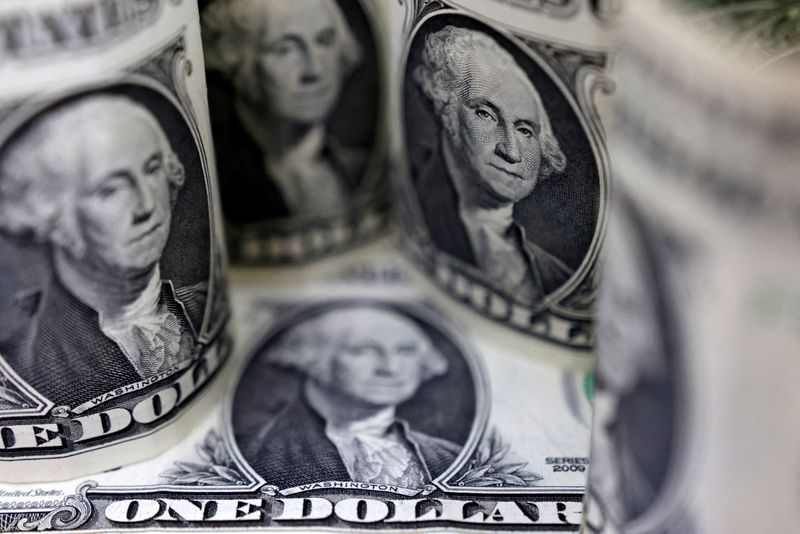By Saqib Iqbal Ahmed
NEW YORK (Reuters) - The dollar jumped to a four-week high against the euro on Monday, as last week's blockbuster U.S. jobs report raised the likelihood of the U.S. Federal Reserve keeping on with its inflation-fighting interest rate hikes for longer.
The euro slipped 0.6% against the dollar to $1.0724, its lowest since Jan. 9, following a 1% drop on Friday. The euro remains not far from the 10-month high of $1.1034 hit last week.
"Friday's NFP (nonfarm payroll) number solidified the likelihood of another 25 basis points hike and reduced the chances of an eventual rate cut at the end of the year, sending equities lower and the greenback soaring," said John Doyle, vice president of operations and trading at Monex USA.
"Overall, the dollar's decline since late November has been impressive. However, it now looks like it was a bit overdone," Doyle said.
On Friday, data showed U.S. job growth accelerated sharply in January while the unemployment rate hit more than a 53-1/2-year low of 3.4%, pointing to a stubbornly tight labor market, and a potential headache for Federal Reserve officials as they fight inflation.
The data came after the Fed on Wednesday raised rates by 25 basis points and said it had turned a corner in the fight against inflation, leading investors to price in a slowdown in the pace of rate hikes going forward.
On Monday, U.S. Treasury Secretary Janet Yellen said she saw a path for avoiding a U.S. recession, with inflation coming down significantly and the economy remaining strong, given the strength of the U.S. labor market.
The Turkish lira, under pressure from geopolitical risks and surprise inflation readings out of the country, briefly slipped to a record low of 18.85, in early trade, as a major earthquake hit the region.
Sterling slipped 0.2% on the day at $1.20245, a fresh one-month low, as traders look to British growth data and remarks from Bank of England policymakers about the pace of interest rate hikes for clues to the outlook for the British currency.
The yen fell more than 1% against the U.S. dollar after the Nikkei newspaper reported, citing anonymous government and ruling party sources, that Bank of Japan Deputy Governor Masayoshi Amamiya was being sounded out to be the next governor.
In a news conference on Monday, Deputy Chief Cabinet Secretary Yoshihiko Isozaki said there was no truth to the Nikkei report.
Amamiya is considered the "most dovish among the contenders, which is thrashing hopes that BOJ policy normalisation could progress under the new chief," Saxo strategists said.
Meanwhile, bitcoin was little changed on the day at $23,015 remaining close to the more than five-month high of $24,258 touched last week.
